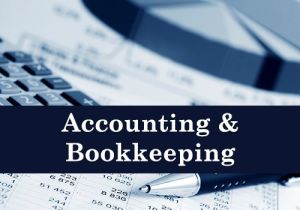Bookkeeping: Keep Pest Control Businesses Audit-Ready

Managing a pest control firm involves dealing with hectic schedules and customer requests. In the midst of all this, bookkeeping may appear to be a back-office duty that you can avoid. However, it is not. Let’s understand why.
When an audit arrives, your records must be clean and ready to present. This is made possible by proper pest control accounting. It maintains everything in order. This allows you to manage an audit without stress or last-minute worry. Let’s take a look at specific ways that show how strong bookkeeping keeps pest control companies audit-ready all year.
How Bookkeeping Keeps Pest Control Companies Audit Ready?
Keeping Detailed Service Records
Bookkeeping allows your pest control business to track every service task. It includes inspection and final treatment. This contains many small details like the date, customer name, and kind of pest. When you track this data, it helps more than just monitoring labor. It is used to show that your revenue matches your service history at the time of auditing.
What if you don’t have this track of records? You may struggle to justify unexpected increases or decreases in income. This means accurate service records are important. Also, it makes it easier to determine whether all invoices have been paid. So, by maintaining detailed records for each job, you reduce guessing and provide a clear record.

Recording All Business Expenses Clearly
Auditors usually verify that your claimed costs are genuine and related to your firm. And here, pest control bookkeeping shines. It allows you to store receipts and supplier invoices. It also allows you to keep gasoline expenditures and equipment purchases all in one spot. In pest control businesses, the expenses could be traps, sprays, uniforms, and vehicle maintenance. If these are not correctly documented, you risk losing lawful deductions. You may also be facing inquiries you are unable to address.
So, bookkeeping is important for detailed cost monitoring. It demonstrates that you are not combining personal and company spending. This helps you stay compliant and reduce red flags during an audit.
Tracking Payments from Clients
Good bookkeeping ensures that all customer payments are accurately documented. It can be in cash, credit card, or bank transfer. This allows you to link your bank deposits to issued invoices. This leaves no space for mistakes. This is important because if an auditor discovers payments that are not related to invoices, they might think you have hidden revenue.
For pest control work, keeping a tight track of payments is crucial. Why? You may have numerous minor operations each week. It shows that your money has been completely disclosed. Also, you have a dependable system in place to handle and verify all transactions.
Organizing Tax Documents Properly
Pest treatment firms are charged a variety of taxes. It includes sales tax on services and employee payroll taxes. And if you hire a bookkeeping service business, it ensures that all tax data is organized. This data includes returns, receipts, and related forms. It is necessary because during an audit, you will not have to go through tons of paperwork.
Instead, you may display entire files with all payments and filing dates. This arrangement minimizes stress. It also enables you to respond quickly to auditor queries. Moreover, it shows that you are serious about compliance. This might benefit you during the review process.
FAQs About Bookkeeping for Pest Control Firms
1. Why is bookkeeping important for pest control companies?
Bookkeeping ensures accurate financial records, helps track expenses, and keeps the business compliant with tax and audit requirements.
2. How does bookkeeping help during an audit?
With well-maintained records, audits become smoother, faster, and less stressful, as all required documentation is already organized.
3. Can bookkeeping reduce financial errors?
Yes. Professional bookkeeping minimizes errors by keeping records accurate and up to date, preventing costly mistakes.
4. Do pest control firms need a bookkeeping specialist?
Absolutely. A specialist understands industry-specific needs and ensures that financial records are compliant and audit-ready.
5. How often should bookkeeping be done?
Ideally, bookkeeping should be updated regularly—monthly or quarterly—to avoid last-minute stress during audits or tax season.
Conclusion
An audit does not have to be difficult if your records are already in order. Consistent bookkeeping is the key to staying compliant, reducing stress, and running your pest control business smoothly. Proper bookkeeping is more than just recordkeeping—it’s your shield against errors and audit challenges.
Don’t wait for a notice to start preparing—be proactive. For expert bookkeeping services designed for pest control firms, contact FRAXN today. Their team of specialists ensures your company remains organized, compliant, and audit-ready all year long.




